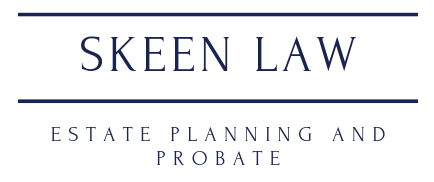 An estate plan is not just a Will and the issues are not just tax issues. Estate planning encompasses every aspect of your life–financial, personal, family–the most private areas for people. Each facet is relevant and infused with the complexity and richness of your life.
An estate plan is not just a Will and the issues are not just tax issues. Estate planning encompasses every aspect of your life–financial, personal, family–the most private areas for people. Each facet is relevant and infused with the complexity and richness of your life.
Living without an estate plan has two disadvantages. If you have an estate in excess of the Federal Estate Tax exemption, then your Will must include certain tax planning. The exemption has increased dramatically in the last twenty years but, unfortunately, the amount of the exemption which will be in effect in the future remains uncertain. For additional wealth transfer, your Will is one of the least important estate planning documents in your estate. Estate planning is essential to ensure wealth transfer. Estate planning can save millions of dollars in taxes. In some circumstances, including estates of all sizes, planning can eliminate all estate taxes. Effective estate planning for wealth transfer purposes is best implemented over time. In addition, planning that can be put in place beginning at age 50 is far different from planning instituted at age 90.
Equally important are the refinements made to your plan that only you can determine. Clients revise their plan several years after implementation because they have new ideas and objectives which they want reflected in their estate plan. They consider what they want to accomplish during their lives, the kind of person they want to be remembered as, and the kind of people they want to help their children become. The process that begins with the first Will a client signs continues as they consider the legacy they want to leave.
Estate planning is not just a monetary tool. What do you want to give your children? Is it a million dollars? Is it self esteem? Do you want to give your children fish or teach them how to fish? A friend of mine has significant wealth. However, the most valuable gift he consistently gives his family and close friends is his time, advice and counsel in teaching them “to fish.” Wealth and self esteem are clearly not mutually exclusive. Wealth can be used to take advantage of opportunities, to educate or to provide for the personal needs of your children. Wealth can be used to provide “extras” for your children at certain times in their life; when they have small children, in order to facilitate the purchase of a home or start a business, provide income for a housekeeper in times of stress, etc. My clients have taught me that “thoughtless” money usually does not facilitate the desired goal. However, intentional giving can be invaluable. Intentional giving can be anything: money, time, attitude. Small amounts of money given or used intentionally can have a ripple effect far greater than a large amount given thoughtlessly. Formulating the legacy you wish to leave your family is an essential part of an effective estate plan.
Clients formulate their estate plan which then becomes part of their life. They tell me actions they have taken and conversations they have had with their children. They have made changes in the way they handle things, the things they do, the words they say and the money they give. These changes are subtle. Frequently, my clients are not aware of the changes until we meet again to review their plan. This process is enriching to the family, and frankly, to me. I have learned an enormous amount and have been enriched immeasurably by my clients sharing their insights into the estate planning process.

Leave a Reply